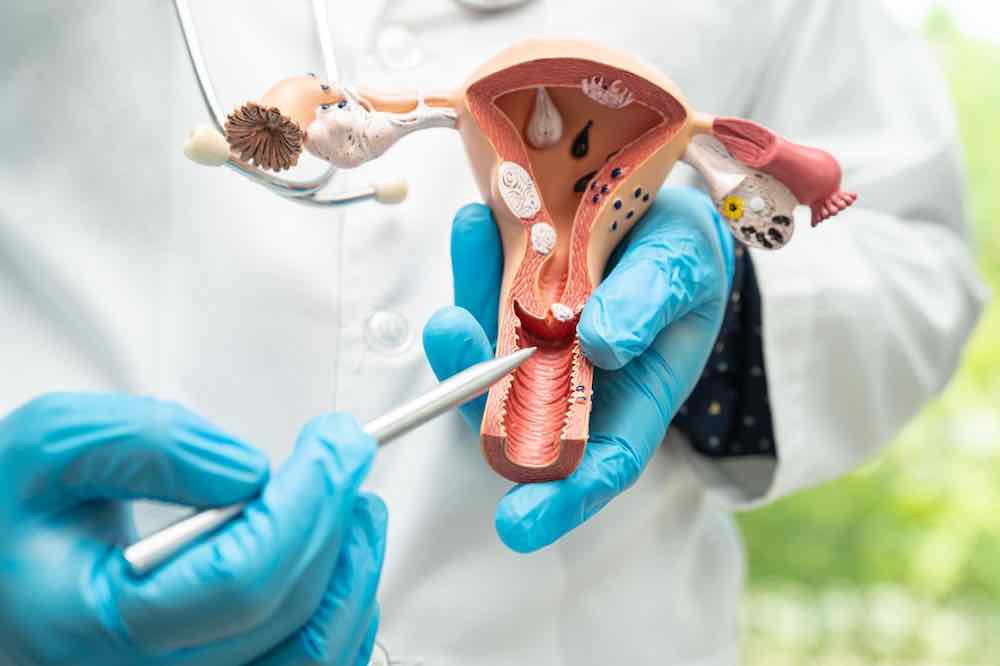This article was updated March 2025
Alright ladies, let’s have a little heart-to-heart about something really important — your sexual health. Since you’re here, I’m guessing you’re a health-minded person. That’s great! Your body is miraculous, and it’s awesome that you’re taking care of it.
If you’ve noticed any unusual symptoms related to your vagina (or the rest of your female anatomy), I know it might not be the easiest thing to talk about. But your reproductive health is something every woman needs to keep an eye on — especially if you’ve been sexually active. You might be wondering, “Is a Pap smear an STD check, and is that what I need to get answers?”
When it comes to sexual health, we’ve been there. We care. And coming to ThriVe is a nice change from going to a hospital or big clinic. It’s warm, welcoming, and doesn’t have that cold, sterile vibe you might have experienced in the past.
So, here’s the deal. At ThriVe, we offer no-cost tests for STIs (sexually transmitted infections) like gonorrhea, chlamydia, syphilis, trichomoniasis, and HIV. We are serious about respecting your confidentiality, and we’ll never share your information without your consent (except in situations required by law, like abuse). Have you ever been screened before? Either way, no judgment here. But you deserve to experience the best health possible!
Have you been sexually active and have some uncomfortable symptoms (like pain or itching)? Notice something unusual (like bleeding or changes in vaginal discharge)? Now might be a good time to think about getting checked out. We’ll never judge you, or anything like that. You’re beautiful, smart, and you’ve got goals. We just want to help you get your glow back, and empower you to take charge of your health!

Pap Test or STI test?
Why a pap smear?
Is a Pap smear a STD check? No, it’s not. A Pap Smear (also called a Pap test) is where your doctor checks for cancer cells and abnormal cervical cells that could turn into cancer. Your cervix is the lower part of the uterus that opens into the vagina.1 A Pap smear can find signs of cervical cancer in the early stages, when it’s easier to be cured.1 Your doctor might also do an HPV test (human papillomavirus) along with the Pap smear test as part of a pelvic exam, because HPV is a common STD that causes cervical cancer.1 . According to the folks at Mayo Clinic, most women should start getting tests at twenty-one and then every five years if the Pap smear results are all clear1 So it’s more of a “routine” check-up that you schedule with your regular doctor or gynecologist.
Got some symptoms making you wonder whether you should get checked out? If you have noticeable symptoms causing you discomfort or pain, scheduling a Pap exam with your doctor might be a good place to start. If you’re ever wondering, please contact your OBGYN to get some answers. When you have a great OBGYN, they’ll be able to talk to you and make sure you understand what’s going on with your health. They’ll know the answers to all your questions, whether it’s about your vagina, cervical cells, or things like human papillomavirus.
Why STI screening?
We answered “no” to the question “Is a Pap smear a STD check,” but now let’s talk about what an STD screening is. These tests are for identifying infections like chlamydia or gonorrhea early. Tests are done with a swab, urine sample or blood tests (like an HIV test for human immunodeficiency virus), depending on the infection. Why? So you can get treated and stay healthy. If you’ve been sexually active, it’s a good idea to get an STD test. Even if you don’t have symptoms, it’s possible for you to be carrying an STI.2 . STIs can bring with them a whole slew of symptoms, ranging from no symptoms at all, to downright painful. If you’re pregnant (even if you’re considering abortion), it’s important to get screened for STDs.3 You deserve to have great health and comfort. That’s why we offer no-cost STI tests here at ThriVe.
Girl, I know the idea of going in for a test might make you a little nervous. I can relate. But it’s actually a way to protect yourself. But think of it like this: it’s just another way to show yourself some love. You wouldn’t skip your skincare routine, right? So, why skip out on checking in with your body? Especially if you’re in discomfort or pain.
If it’s time for a Pap exam, make sure to make an appointment with your OBGYN. Pap smears aren’t a service we offer at ThriVe, but we DO offer no-cost STI tests! Are you pregnant? Considering taking the abortion pill? It’s important to get screened for STIs — and receive the treatment you need! Untreated STIs can lead to chronic pain, organ damage, and trouble getting pregnant in the future when you’re ready.3 Ready to get tested? Head over to ThriVe. You’ll feel so much better knowing you’ve taken control of your health, and it’s an important way to protect your health and future. Make your appointment when you feel ready. We’ll be here to help. And remember that we’re all women over here at ThriVe. It’s a safe place.

Still got questions about finding an exam, or about STI screenings?
More questions answered
1. What exactly is a women’s exam?
– A Pap Smear is a simple test to detect abnormal cells in your cervix, which is the lower part of your uterus. These cells can sometimes develop into cervical cancer if left untreated.1 The test is quick, and can be done at your OBGYN’s office.
2. Does it hurt?
– For most women, it isn’t painful. You might feel some pressure when the speculum (a tool that helps the doctor see the cervix) is inserted. But it shouldn’t hurt. If you’re feeling nervous, let your provider know — they can help make the experience as comfortable as possible. Let your medical provider know if you’re in pain.
3. How often do I need a Pap exam?
– According to the Mayo Clinic, most women should start getting exams at age twenty-one, and then every three years if results are normal. After 30, you can get it every five years if you combine it with an HPV test.1 Your healthcare provider can give you personalized advice.
4. What should I do before an exam?
– To get the most accurate results, avoid douching, or using any vaginal products (like creams or tampons) for 48 hours before your test. Also, try to schedule your exam when you’re not on your period. It’s not a deal-breaker if you are on your period, but it’s better if you can schedule it at a different time. Make sure to check with your doctor.1
5. What happens if my Pap test results find an abnormality?
– Don’t panic! Abnormal results don’t necessarily mean you have cancer. They could be due to inflammation, infection, or HPV (a common virus).1 Your doctor will explain the next steps. Those might include a follow-up Pap Smear or a closer look at your cervix with a test called a colposcopy.
6. Can I skip my exam if I’ve had the HPV vaccine?
– Even if you’ve had the HPV vaccine, you still need regular exams. The vaccine protects against the most common types of HPV that cause cervical cancer. But it doesn’t cover all of them.4
7. What if I’m a virgin—do I still need a Pap test?
– If you’ve never had sexual intercourse, your risk of cervical cancer is lower. But it’s still recommended to get a Pap smear.5 There are other factors that can influence your risk. Make sure to talk with your doctor to see if it’s time to schedule an appointment.
But delaying sex (for now) is the best way to avoid STDs. Holding off until you’re in that long-term, committed, monogamous relationship spares you the stress of worrying about STIs and unplanned pregnancy.
Wondering what steps to take first? Here’s a quick quiz to help you figure out if it’s time to schedule an STI test at ThriVe or if you should book an exam with your OBGYN:
STI Screening Quiz
1. Have you been sexually active (even once)?
– Yes → Consider getting an STI test.
– No → Continue to the next question.
2. Are you pregnant (even if you’re considering abortion)?
– Yes → Seek an STI test.
– No → Continue to the next question.
3. Have you been sexually active and are experiencing symptoms like itching, burning, unusual discharge, or sores?
– Yes → Seek an STI test.
– No → Continue to the next question.
4. Have you been sexually active and are experiencing pelvic pain?
– Yes → Seek an STI screening.
– No → If you think you might be pregnant, ThriVe offers no-cost, lab-quality pregnancy tests so you can get the answers you need..
Pap Smear Quiz
1. Are you over 21 years old and haven’t had an exam in the last 3 years?
– Yes → It’s time to talk with your OBGYN about a Pap test.
– No → Continue to the next question.
2. Have you had abnormal results in the past and haven’t followed up?
– Yes → Schedule a Pap exam with your OBGYN.
– No → Continue to the next question.
3. Do you have a history of cervical cancer, or does it run in your family?
– Yes → Definitely book a Pap smear.
– No → Continue to the next question.
4. Have you been experiencing unexplained pelvic pain, bleeding between periods, or unusual discharge?
– Yes → Talk to your OBGYN about an exam.
– No → If you’ve been sexually active, it’s a good idea to be screened for STIs. This is especially important if you’re pregnant (even if you’re considering abortion).
Results:
– Answered “Yes” to any of the questions under STI test? It’s a good idea to head over to ThriVe+ for a confidential, no-cost test.
– If you answered “Yes” to any of the annual exam questions, it’s time to book that appointment with your OBGYN.
Your health matters, and getting screened is just one more way to show yourself some love! Please feel welcome to give us a shout or make an appointment. Whether you’re looking for some guidance or need an STI test, we’ll be there for you. From all of us women at ThriVe, you are valuable, beautiful, and deserve the best.
Sources:
1 https://www.mayoclinic.org/tests-procedures/pap-smear/about/pac-20394841
2https://www.mayoclinic.org/diseases-conditions/sexually-transmitted-diseases-stds/in-depth/std-symptoms/art-20047081
3https://www.mayoclinic.org/diseases-conditions/pelvic-inflammatory-disease/symptoms-causes/syc-20352594
4https://www.mayoclinic.org/diseases-conditions/hpv-infection/in-depth/hpv-vaccine/art-20047292
5https://www.mayoclinic.org/tests-procedures/pap-smear/expert-answers/pap-smear/faq-20057782




